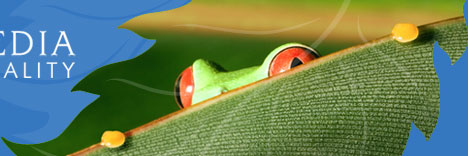Archive
Archive pages:
Green Jobs
Filtering Cholera out of your drinking water - 4 March 2009
Access to safe drinking water is a basic human right, but as South Africa faces the current Cholera outbreak which to date has seen more than 8971 cases reported for treatment, the cleanliness of our water can no longer be taken for granted.
In South Africa, Cholera has been found in Limpopo, Mpumalanga, Gauteng, KwaZulu Natal and most recently in the Western Cape. In the current situation, more than 50 people in South Africa have already died from the disease. The worst affected provinces, Mpumalanga and Limpopo, account for more than 96% of the Cholera cases within the country.
Is our tap water safe? According to Pam Yako, Director General of the Department of Water Affairs, "South Africans can with confidence drink and use for domestic purposes the water that pours through their taps at home and in their workplaces."
However with the infrastructural challenges South Africa is confronted with, water quality cannot always be guaranteed in rural areas and smaller municipalities, especially after heavy rains. The World Health Organisation (WHO) estimates that 94% of Cholera cases are preventable through modifications to the unsanitary conditions of water distribution and the poverty-stricken areas within which they are the most prevalent.
What is Cholera? Cholera is classified as an acute infectious disease of the small intestine, caused by water born bacteria, characterized by profuse watery diarrhea, vomiting, muscle cramps, severe dehydration, and the excessive depletion of electrolytes within a rapid period and which can be life threatening.
How can we safeguard ourselves against this disease in our homes and offices? Here are seven helpful tips that can be followed:
- Get vaccinated against the disease, although this only offers limited immunity and the jury is out about whether or not people travelling to or living in Cholera infected areas should be vaccinated.
- Maintain high standards of personal hygiene - wash your hands with disinfectant soap and very hot or boiled water throughout the day, especially after going to the toilet and before eating.
- Boil or purify your water- it needs to boil for at least ten minutes in order to kill the waterborne bacteria which causes Cholera.
- Prepare your own food- any fruits or vegetables should be washed with purified water, and do not use pre-prepared fresh produce. Avoid raw, uncooked salads and any food that has been cleaned or washed with untreated water.
- Do not swim in untreated water, as many cases are contracted by the accidental ingestion of contaminated river or dam water whilst swimming.
- Filter your water through a ceramic or UV purification system. There are a wide range of systems available which first remove sediment and then pass the water through filters which remove or kill off all harmful bacteria.
H20 International SA, a South African company that supplies water purifiers locally and internationally, specifically recommends using Gravity Feed Filters with silver impregnated ceramic candles, which are cost effective, portable and easy to use anytime and anywhere. Utilising high quality ceramic water filters, they guarantee the removal of 99.99% of all pathogenic bacteria.
"These water filter systems use very simple technology and offer a simple solution to counteract the current Cholera epidemic - It’s suprising that they are not being used on a more widespread basis," says H2O director, Tony Marchesini.
"Major relief organizations have relied on the Gravity Water Filter and ceramic candles. We have been inundated with request for these filters by Zimbabweans. Ceramic candles have been used extensively worldwide for many years, and offer the most efficient and cost effective way to produce pure, filtered water by removing sediments, colloids and other non-dissolvable substances such as bacteria," concludes Marchesini.













